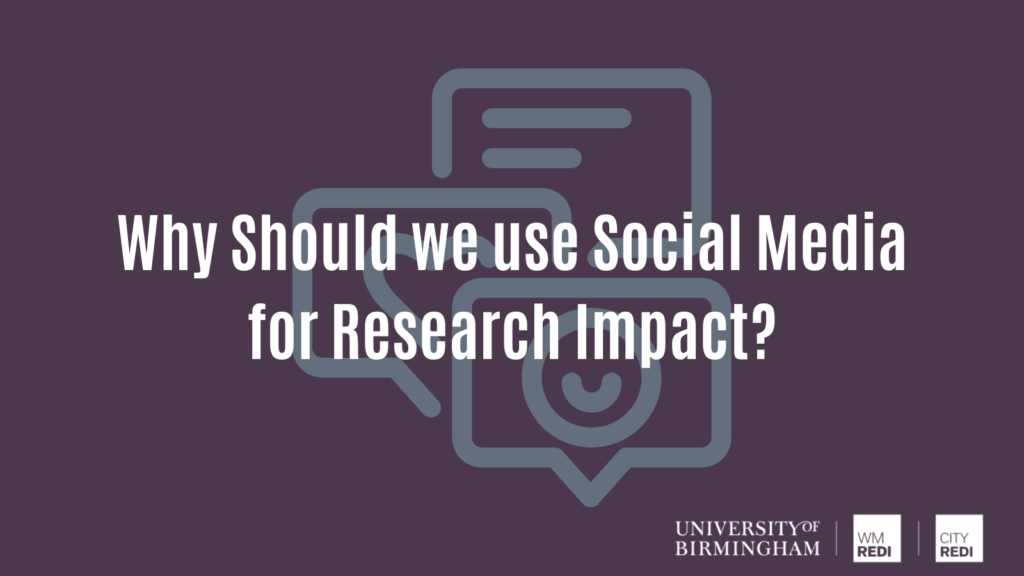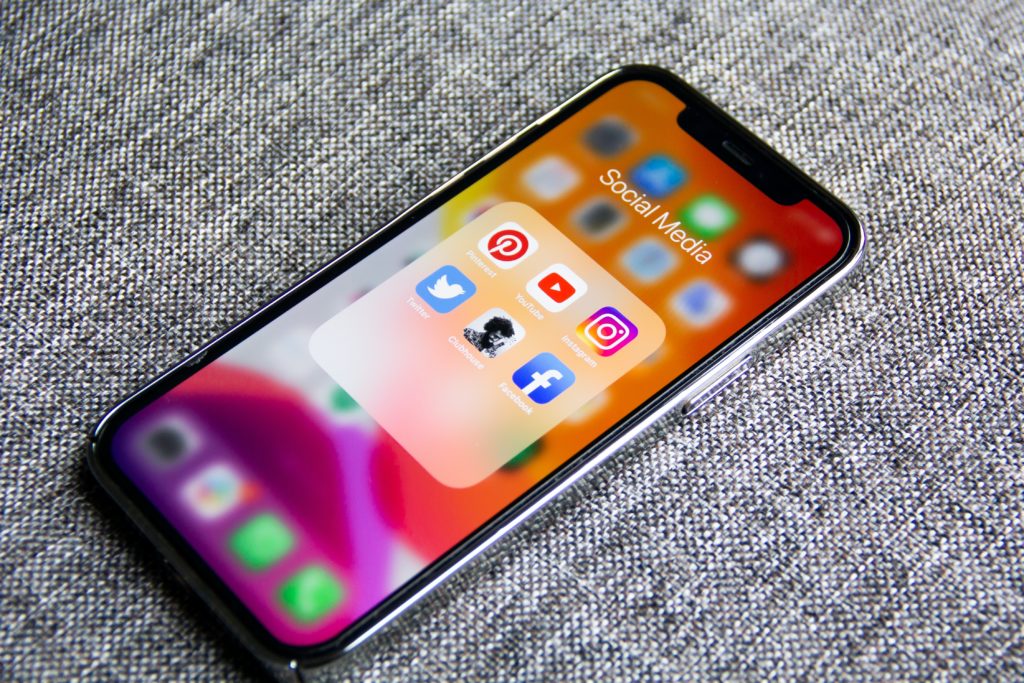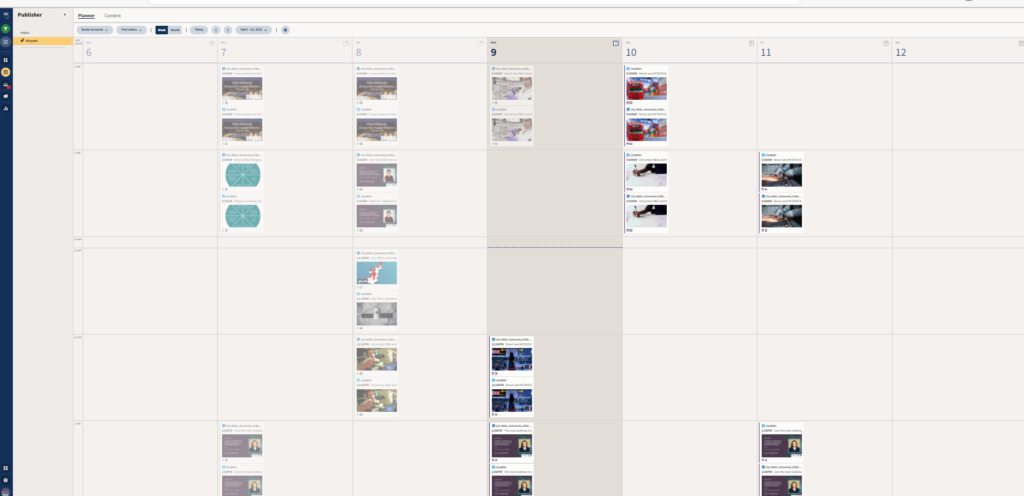
Ellie Macdonald discusses how social media can be a positive tool for sharing and discovering research.
Having started my digital marketing apprenticeship and having a passion for everything social media, I have learned a lot in the range of courses I have completed and the opportunities I have been offered.
I have looked at the way social media can be used by academics and the different ways that social media can be used for research impact. Whilst some academics engage with social media and use it to their advantage to promote their work, others use it sporadically and or not at all.
Academic research still tends to be shared mainly through conferences, journals and publications. But in the digital age and with the impact of the pandemic, the continuing growth of social media has forced a lot of people online so that they can keep up with the increasing amount of research in their industry/area.
Jessica Rodgers wrote a piece for Bioresources about ‘The use of social media and its impact for research‘.
…the fast-paced and live aspect of social media can drive skeptical researchers not to publish, but successful reactions and quick responses can increase a researcher’s credibility. Research is about producing new information, and social media offers unique opportunities to present new content.
Why social media?
Social media has an opportunity to reach thousands if not millions of people, so why wouldn’t you use it?
Many people are scared that the social media world is far too fast-paced that they might not get their research read but by taking the risk, you could find that it goes ‘viral’ and your name is recognised even more for the brilliant work produced.

Almost every academic writes a presentation after they publish a piece of research and presents it to their colleagues through various different forums. What if as well as presenting your work at various conferences, you write a short tweet or post on Facebook about it and you can reach 10 times the amount of people you would in one single presentation! It’s also a great way of keeping up with work from other academics in your area.
When researching for this blog, I asked my colleagues about their engagement with social media.
One of the reasons I use social media for research is because it is an easy way be on top of the new work that is coming out and to share and interact with other researchers on current topics.
Social Media is a real conundrum for me. As a tool for sharing and disseminating academic research, it’s hugely important, but in general, I feel it’s a dangerous and damaging thing that I want to avoid. I’d used Twitter consistently for many years (never had a Facebook account), but by the end of 2019, I was already finding it was making me more angry and depressed, and during the pandemic, it had reached a point where it was negatively impacting my mental health. I came off the platform, and my state of mind improved immensely. I am now in a position where I appreciate the importance of having that outlet for my work, but still, associate that world with the negative mindset and frustrations that forced me away from it.
I like to use Twitter, not so much to promote my own work, to see what others are up to. Especially during Covid it was also a nice way to keep sort of in touch with people, and now that in-person events are back, I met a lot of people that I knew from Twitter. I think as an academic, you need to build your brand a little bit, and some people are really good at that. Not sure I’d necessarily want to become some kind of Twitter celebrity, but it seems to be working out really well for some people!
Partly because I am of an older generation that grew up with the responsible broadsheet media and BBC news and have seen the damage social media can cause to individuals and society. Also, I find it difficult to practically manage the more sophisticated applications. I am happy to use secure systems like WhatsApp for domestic purposes but recognise that I am losing out by not using Facebook or Twitter or actively using LinkedIn. So I may have to bite the bullet sooner rather than later and find the time to be more proactive.
Making the most of social media
Before you start, you want to ask yourself, what do I want to get out of social media? If it is increased reach and you want more people to interact with your work, then you need to make sure you interact with other people’s work in the same community or industry you are a part of. Be ‘social’ on social media and you will be rewarded when more people interact and read your work. Participating in discussions and making yourself present by posting content will make you more visible to others.
Next time you publish a piece of research, post it on social media with some relevant hashtags and see who it reaches. This could really help boost feedback responses and allow you to access the unprompted feelings and opinions of users.
UKRI says that social media allows you to:
- Follow and contribute to discussions on events
- Reach new audiences, both within and outside academia
- Generate ideas
- Promote your research and increase its visibility
- Seek and give advice and feedback
You need time to invest in building your social media presence and sustaining the activity on it to make sure you reach enough people.

Choosing the right Social Media
It is also important to choose the right social media for what you want to produce, examples include:
- Social networking – Facebook and LinkedIn
- Blogging – WordPress
- Microblogging – Twitter
- Video sharing – YouTube
- Photo-sharing – Flickr and Pinterest
- Content collecting and curating – Scoop.it, Reddit.
Advantages of being present on a variety of Social Media
- It allows you to organically promote your work without having to organise events and spend money.
- Helps you to build your personal brand.
- Drives traffic to your previous, current, and future work.
- You can quickly connect with people in your area of work and people who have an interest.
Blogs
Blogs are a good way of disseminating your findings and can direct people in the direction of other research you or someone else has done. You can also use social media to direct people to your blog, increasing the engagement of people in your work.
Scheduling
If you are too busy to share your research at times where it will reach more people (7am-8am, 5pm-6pm, 8pm-10pm) you can schedule your posts using sites like Hootsuite where it will publish your post at a time you set with what you have written.

Social Media Strategy
For any strategy on social media to work, you need to make sure that the work you are promoting is reaching the relevant people and the right audience. A social media plan can be a good way to plan what you want to say and do at which points. Before committing to a social media plan or calendar, you need to make sure you have enough time to invest and make sure you are updating it and regularly engaging with your followers. This can change depending on what is trending and the topic of conversation.
I think people underestimate the power of social media. With the constantly changing world of technology, you can reach more and more people and get even more feedback and support than you could ten years ago. By changing the outlook on social media and research, you can change the ways that you share new ideas and new research.
This blog was written by Ellie Macdonald, Digital Marketing Apprentice, City-REDI, University of Birmingham.
Disclaimer:
The opinions presented here belong to the author rather than the University of Birmingham.
To sign up for our blog mailing list, please click here.
